From decorating a dorm room or first apartment to getting around the city, costs add up for students on a budget. The good news is that sustainable living practices help you live in harmony with the earth and in sync with your budget.
More good news: Colleges and universities offer plenty of resources to assist you. Hennepin County’s here to help, too, with this Budget-Friendly Sustainable Living Guide for College Students. It’s organized as follows:
Getting started
List of nearby reuse retailers
Moving in & moving out
- For University of Minnesota students
- The University of Minnesota reuse program
- Pack & Give Back
- Summer storage
- Augsburg University ShareShop
Living sustainably by reducing, reusing and recycling
- Eat sustainably
- Travel sustainably
- Host sustainable events
- Conserve energy
Get involved
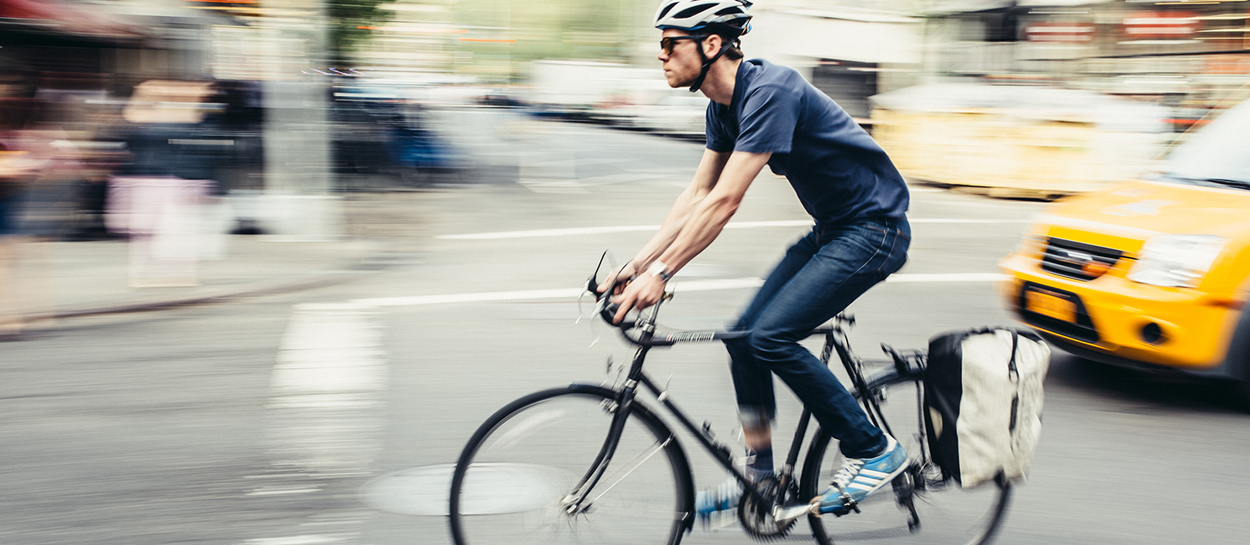
Getting started
College students are no strangers to quizzes. So before you make a purchasing decision, be mindful of sustainability and intentional shopping, and ask yourself these questions:
- Do I really need it? This is important, because as valuable as recycling and reuse are, reduction has the greatest impact on sustainability. Use less, and manufacturers will make less. Which means fewer resources will be extracted from the earth on the front end, and we’ll have less waste to dispose of on the back end.
- Can I upgrade an existing product? Sadly, many manufacturers design products to have a short useful life so that consumers are forced to keep on buying. You can throw a wrench into those practices by refurbishing an aging product instead of tossing it in favor of a new one. Your slow-performing PC may just need a cleaning and a RAM upgrade. Your broken vacuum that won’t turn on? A vacuum repair professional can easily replace the power switch.
- Does it serve multiple purposes? Need a printer? Find an all-in-one model that also works as a copier and scanner.
- Can I find it used? In addition to an entire community of resale retailers, your university can help you find quality used goods. And there’s no shortage of online forums for buying, selling, and donating secondhand goods.
Remember that every product you buy has a carbon footprint – an amount of CO2 emissions associated with its production, distribution, daily use and disposal. So when you do buy something, buy sustainable and green. In the process, you’ll:
- Save money. Buying less costs you less. Likewise, smart purchases – like choosing a fluorescent bulb over an incandescent one – yield smart savings. And if you bike or walk when possible instead of driving, you’ll not only spend less on gas, you’ll improve your health.
- Help save the planet. As the world’s population continues to grow, each of us needs to be more conscious of our consumption in order to provide for future generations. Adopting healthy environmental choices is especially important for college students, who are future leaders.
- Protect your campus environment. Your campus encourages you to work with the various sustainability programs to continue to keep our community an environmentally sustainable one.
Hennepin County reuse stores near University of Minnesota and Augsburg University
U of M ReUse Store
883 29th Avenue SE
Minneapolis, MN
Sisterhood Boutique
2200 Riverside Ave.
Minneapolis, MN
Urban Jungle
1419 South Washington Ave.
Minneapolis, MN
GH2
318 East Hennepin Ave.
Minneapolis, MN
Thrifty Outfitters
309 Cedar Ave South
Minneapolis. MN
Old School by Steeple People
1901 Nicollet Ave S
Minneapolis, MN
Free Geek
2537 25th Ave S
Minneapolis, MN
ReStore Outlet - Habitat for Humanity
2700 Minnehaha Avenue
Minneapolis, MN
St. Vincent de Paul Thrift Store
2939 12th Ave. S.
Minneapolis, MN
The Golden Pearl Vintage
507A E Hennepin Ave
Minneapolis, MN
The Salvation Army Family Store
900 N Fourth St
Minneapolis, MN
Time Bomb Vintage
3543 E Lake St
Minneapolis, MN
b. Resale
2613 Nicollet Ave.
Minneapolis, MN
Groovy’s
4206 Cedar Ave S
Minneapolis, MN
Audrey Rose Vintage
2237 E 38th St
Minneapolis, MN
Turqoise Vintage
3869 Minnehaha Ave S
Minneapolis, MN
Furnish Office & Home
850 NE 15th Ave
Minneapolis, MN
Moving in sustainably (and moving out)
The first thing students ask themselves when moving into a dorm or apartment is, “What do I need?” Likewise, when moving on, the question, “What do I do with all this stuff?”
If you’re one of the many thousands of students in Hennepin County, our colleges and universities have a number of sustainable resources for you. Here are just two examples, from the University of Minnesota and Augsburg University. If you attend another institution, see if they offer programs similar to these:
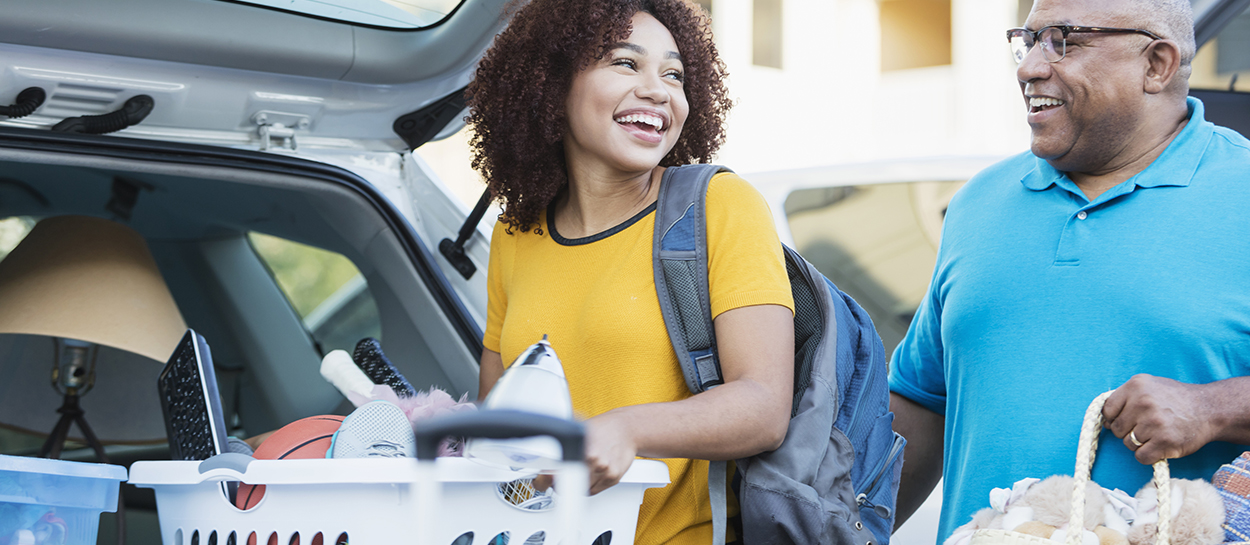
The University of Minnesota ReUse Program
An invaluable resource for students in transition, the ReUse Program collects surplus office furniture, supplies, equipment and parts from throughout the Twin Cities Campus and makes them available to University departments or individuals for purchase. This sustainability program works to:
- RELIEVE 250 University buildings of unwanted materials, fixtures and supplies.
- REDISTRIBUTE furniture & equipment valued at over $200,000 to U of M departments each year.
- RESELL a never-ending variety of items to the general public each Thursday and Saturday.
- RECYCLE unwanted steel, aluminum, wood, cardboard & paper.
- REDUCE campus construction waste that would otherwise end up at the landfill.
The ReUse Program even has an area dedicated to high-value, vintage, new stock and other interesting secondhand materials that aren’t available on its sales floor.
Questions about the ReUse Center? Check out the self-help guide or connect via Facebook or email.
University of Minnesota ReUse Program Warehouse
883 29th Avenue SE
Minneapolis, MN 55414
Phone: 612-626-9152
E-mail (preferred contact method): reuse@umn.edu
General Public Hours
The public, as well as university students and staff, may shop at the ReUse Program Warehouse at the following times:
Thursdays: 8:30 a.m. to 5 p.m.
Saturdays: 10 a.m. to 4 p.m.
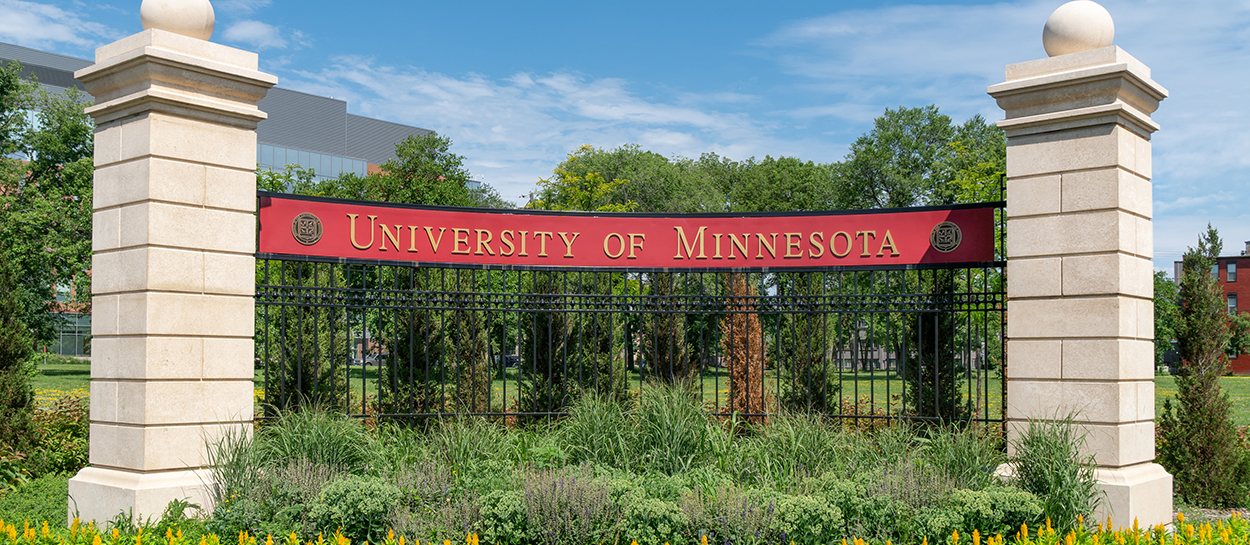
Get free and low-cost necessities through “Pack & Give Back”
This sustainability program helps to reduce waste generated by students when they move at the beginning and end of each semester. When they move out in the spring, students are given the opportunity to donate things they no longer need. The ReUse Program sorts and sells, or disposes of them.
Used items are available throughout the year, but in the fall many items from Pack & Give Back are available in the Free Store, held for two weeks at the beginning of each semester. Students are invited to check out the Free Store before buying new items like futons, furniture and refrigerators (Neighborhood residents can also shop the Free Store during the last week of the sale, if they’ve made a donation).
Students can leave reusable materials at collection points in residence halls. Food, toiletries, clothes, small household items and appliances are accepted. Donated items that cannot be reused often find a second life elsewhere. For example, “We donate linens, towels and blankets to the Wildlife Rehab Center, says Todd Tanner, Zero Waste Program Manager for the University of Minnesota.
The ReUse Program’s self-help guide has more information about Pack & Give Back.
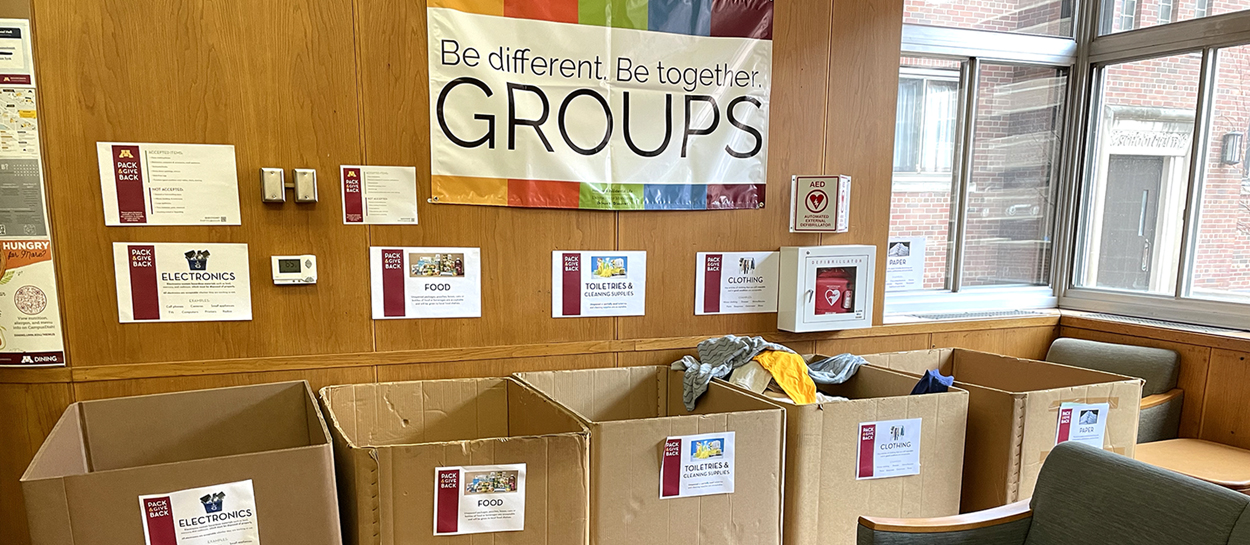
Take advantage of the Summer Storage Program
Say you’ve just completed your freshman year and are heading home for the summer. What do you do with items you’d like to keep but have no room to store? The Student Summer Storage program will store your possessions for the summer and allow you to retrieve them in the fall.
Students who wish to store items over the summer will pay $40 for a 48” x 24”x 28” box, or $40 per large item – such as a futon or minifridge – that won’t fit in a storage box. The cost is less for storage of one month or less.
Making the program even more convenient, pick-up and delivery ($30 charge) is available at numerous residence halls around campus.
Augsburg University ShareShop
Made by and for students, the ShareShop is a sustainable enterprise that offers free household goods, small kitchen appliances, sheet sets, and other items in an effort to help students save money, reduce consumption of material goods, and provide a space that fosters community and informal learning about sustainability practices. The Pop-Up is a satellite site of the ShareShop and Campus Cupboard, where students can get free non-perishable food, school supplies, clothes and professional attire.
Outside of the ShareShop you’ll find The Free Table, where students can donate and take items without needing to check them out.
Starting in the Spring of 2022, Augsburg also began offering MoveOut! This sustainable initiative enables students who are moving out of the dorms to donate any small appliances, furniture, fans, kitchenware, clothes and other items to the ShareShop.
Visit the ShareShop page for current information about location and hours.
How students can live sustainably
Whether you’re living in a dorm or apartment, the following tips can help you make a real difference in the effort to advance sustainability. Better yet, these steps save you significant amounts of money.
As a college student, you already know the “Three Rs” of “Reading, wRiting and aRithmetic.” Now it’s time to master “Reduce, Reuse and Recycle.”
Reduce
The most effective of the three Rs, this means using fewer resources in the first place. Unfortunately, it’s also among the hardest to do since we live in a culture that’s all about getting the latest and greatest. But take heart: You’ll make progress simply by cutting back. A few easy, sustainable things you can do (starting with asking yourself, “Do I really need this?”):
- If you do need an item, look for ones with minimal packaging.
- Buy durable items that last longer, and avoid purchasing disposable items like paper cups and plates.
- Print documents only when necessary, and print double-sided whenever possible.
- Avoid single-use plastics. This is very important, because plastics leach pollutants into our water, air, soil and food. Moreover, much of our plastics waste is not recycled. Currently in the U.S., less than 8% of all discarded plastics are recycled. For more information about plastics, check out Hennepin County’s Guide to Reducing, Reusing and Recycling Household Plastic.
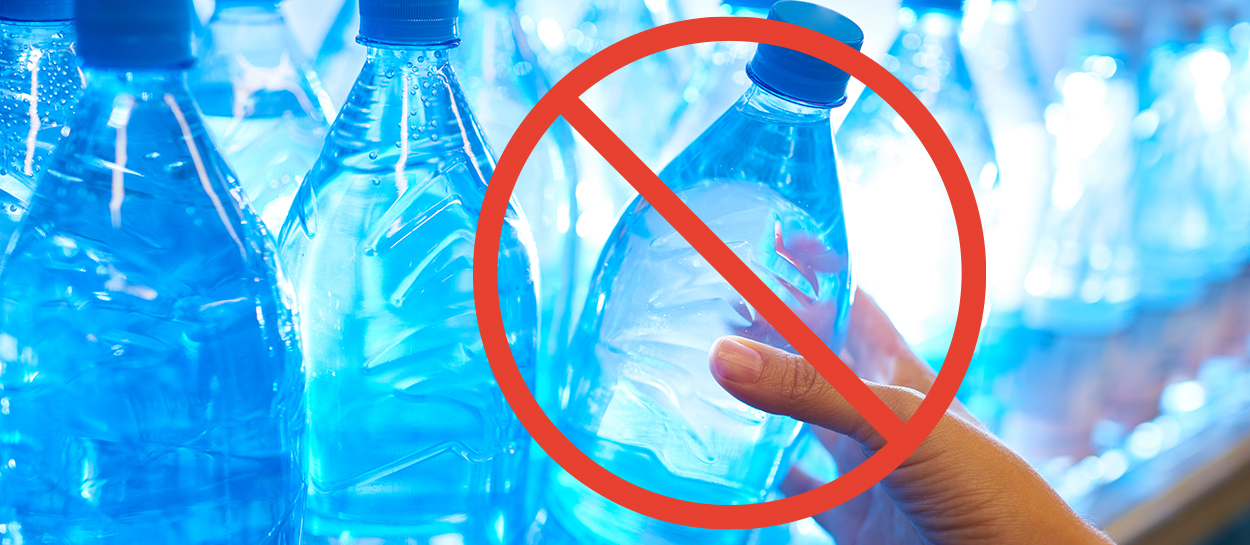
Reuse
Before you send an unwanted item to the trash or recycling bin, consider whether it’s still useable. Lots of kitchenware, for example, will last for many years. Glass jars can store leftovers or screws and nails. Old shirts can become rags or pajama tops. The point is: Reusing keeps new resources from being used and old resources from entering the waste stream. Along with reduction, it’s an absolutely essential component of living sustainably. A few general tips:
- Choose reusable items rather than disposable ones. For example, carry a refillable water bottle and opt for reusable shopping bags, mugs, utensils and plates.
- Designate an area of your residence to collect extra materials for reuse.
- Donate what you don’t need to local charities.
Recycle
For many people, this is the easiest sustainable practice to adopt, in part because many universities and municipalities like Hennepin County have recycling programs. The University of Minnesota, for example, recycles paper, caps & bottles, and organics. While less effective than reduction and reuse, recycling is still important – especially for certain categories of goods. Some basic tips:
- Do your research before you recycle because placing the wrong items into recycling can contaminate the recycling stream. After you check the rules, if you’re still unsure if an item can be recycled, it’s better to be on the safe side and just throw it out.
- Recycle paper, cardboard, glass, plastic and more – noting that every recycling program and drop-off center has its own rules that are important to follow.
- Buy recycled goods such as paper with a high percentage of post-consumer content.
- Recycle food and yard waste by composting.
- Recycle all electronic waste. Electronic equipment contains materials (including lead, cadmium, mercury and much more) that can be hazardous to human health and the environment if they’re not properly managed.
- Many electronics retailers and manufacturers have recycling, donation or responsible disposal programs.
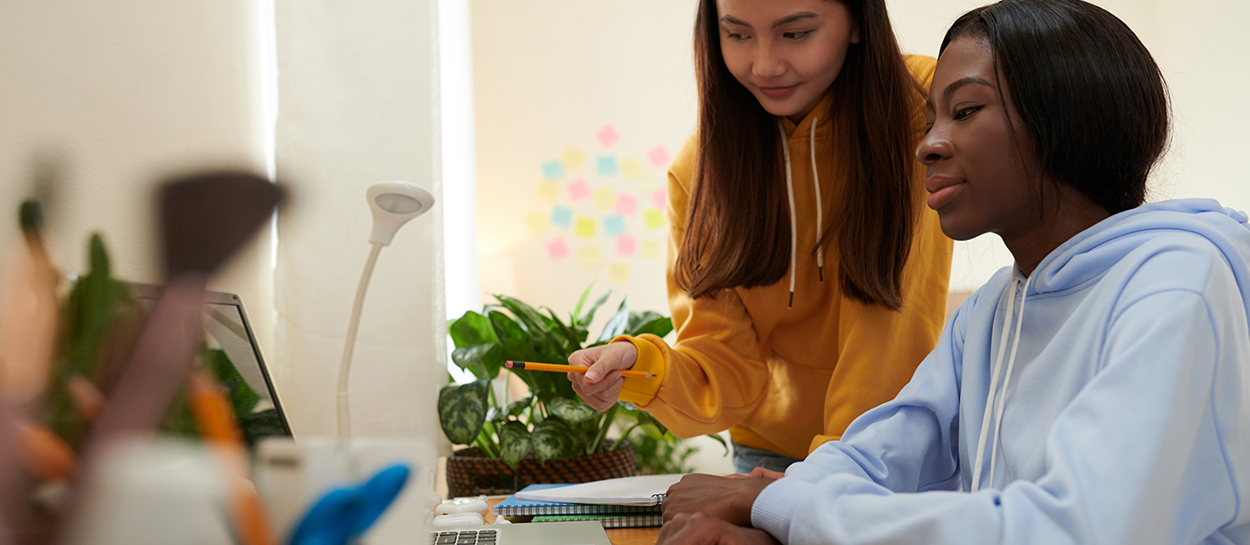
Eat sustainably
About one-third of all food that’s produced in the world goes uneaten, and the resulting waste contributes to greenhouse gas emissions. To conserve resources (and improve your health, plus save money), follow these tips:
- Don’t waste food. On college campuses alone, the Food Recovery Network estimates that about 22 million pounds of food go to waste annually.
- Embrace composting. The practice recycles nutrients and improves soil quality, helps to retain water to mitigate the impact of droughts, and breaks down food in a way that doesn’t release methane, a potent greenhouse gas.
- Eat locally. When you eat food that’s produced locally, you’re saving the energy used to haul the things we eat. You’ll support local producers. And typically the food will be fresher.
- Go meatless. Production of meat, particularly beef, eats up a lot of resources. Try incorporating some meatless meals into your routine, or pledge to go meatless on Mondays.
- Choose sustainable seafood. Protect aquatic ecosystems by selecting seafood that’s responsibly caught or farmed. The Monterey Bay Aquarium provides sustainable seafood recommendations and even a smart phone app to help you make ocean-friendly choices.
- Look for organic products. They protect the environment by minimizing the use of synthetic materials such as pesticides and antibiotics.
- When eating at restaurants where everything’s disposable, bring your own utensils, plastic water, and mugs, etc.
- In the university dining hall, go trayless! You’ll save on the water used to clean the trays, and you’ll also be less apt to grab too much food.
- Make your voice heard! Ask questions and provide feedback to chefs/managers about waste.
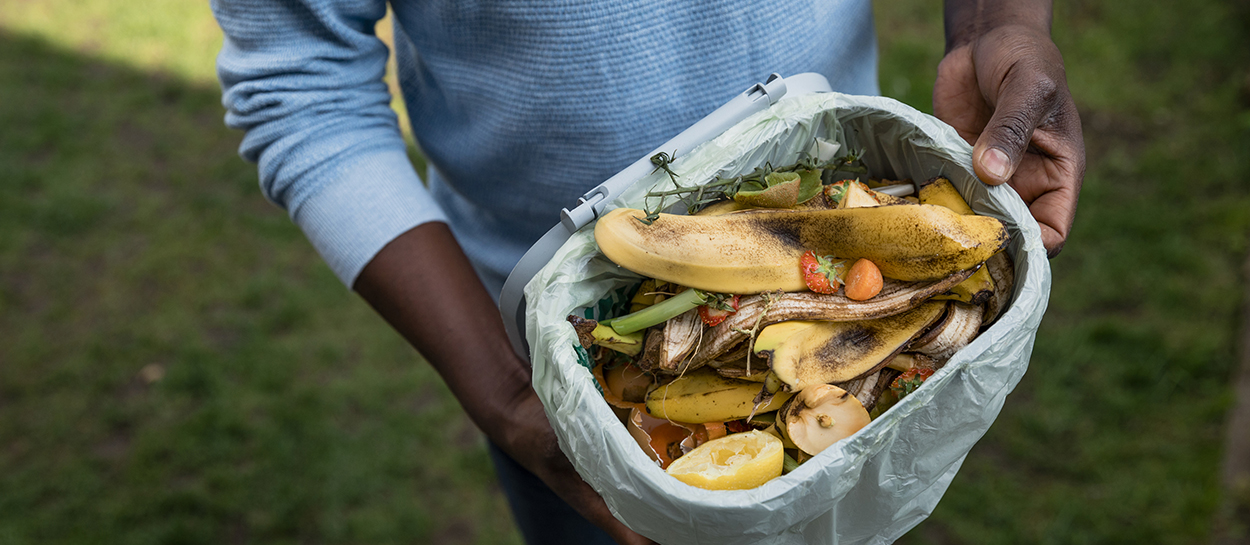
Travel sustainably
By choosing sustainable transportation options such as walking, biking and public transportation, you’ll conserve resources, reduce greenhouse gas emissions, and improve air quality. By the way, cars are sinkholes of expense, so whatever you can do to avoid having to pay for gas, insurance, car payments and upkeep will go a long way to keeping money in your pocket.
Walking
When traveling short distances, consider walking rather than driving. On top of saving energy and reducing pollution, you’ll improve your health.
More than 40% of University of Minnesota – Twin Cities students travel to the U on foot. You’ll find a wide range of information resources on the university’s Walking on Campus page.
Biking
Biking is a green and healthy form of transportation when weather permits. If you’re a University of Minnesota student, know this:
- The campus has nearly 6.5 miles of dedicated bike lanes and paths.
- Join the ZAP Bike Program to earn points toward gift cards just for riding your bike around campus.
- Visit The Hub Bike Center for repairs, gear, classes, bike lockers, showers, and more.
- Read up on rules of the road, bike safety tips, maps, how to use a bus bike rack, and more.
Augsburg University also offers a wide range of transportation resources, including the Augsburg Bike Share Program.
Public transportation
Hennepin County has a well-developed public transportation system, and our colleges and universities offer great resources to help you take advantage of this sustainable resource. Here are a few offered by the University of Minnesota and Augsburg University.
- Find bus routes, transit pass information, and more on the University of Minnesota’s Parking & Transportation Services website and the Metro Transit website.
- Learn how to use bus bike racks on Metro Transit.
- Eligible Augsburg University students can take advantage of the Auggie Pass, which includes all rides on Metro Transit Twin Cities buses and light-rail trains. It also provides free and discounted rides on the Northstar commuter rail line.
- Augsburg University also provides links to resources on its Public Transportation page.
Vehicle sharing
When you absolutely need a car and can’t borrow a friend’s vehicle, take advantage of eco-friendly car sharing.
HourCar is the largest vehicle sharing program in the Twin Cities. The program has four locations on the University of Minnesota campus and guarantees 24/7 access to vehicles. You’ll also find an HourCar location at Augsburg University.
Carpools & Vanpools
This is a great option for people who must drive, but want to share in the costs, live sustainably and reduce the environmental consequences of driving.
- Augsburg University’s Carpools & Vanpools page offers a good summary of your options.
- If you’re a University of Minnesota student in the Twin Cities, you’ll find a wide range of resources on the school’s Carpooling page.
Campus buses
All University of Minnesota campus buses are free and come equipped with wheelchair lifts and bike racks.
- More information about the full range of transit options at the University of Minnesota is provided on the university website’s Transit page.
- Augsburg University provides valuable information on its University of MN Campus Connectors page.
Host sustainable events
Hosting a student group? The following guidelines and resources can help make campus events greener.
Food
- Ask for sustainable menu options with local, seasonal and organic meats, fruits and vegetables.
- Specify that you would like sustainably harvested seafood and/or free-range meats.
- Specify condiments in bulk (sugar, salt, pepper, ketchup, mustard, mayonnaise, peanut butter, jam, cream cheese, and butter) rather than individually packaged portions.
- Serve tap water vs. bottled water.
- Request organic, shade-grown coffee and tea.
- Always request Fair Trade products. Fair Trade products include coffee, tea, sugar, cocoa products, and bananas.
- If possible, donate leftover food.
Waste
- Specify reusable (non-disposable) utensils, cups and dishes.
- Request cloth napkins and tablecloths.
- Provide recycling and composting at your events.
- If disposable plates and utensils must be used, avoid polystyrene/Styrofoam. For disposable cups, request a recyclable one, and if composting is an option, specify compostable plates.
- Avoid individually wrapped meals or boxed lunches.
- Provide signage educating attendees about sustainable food choices, recycling, and composting.
Conserve energy
Even if you’re living in a dorm and not paying for electricity based on your personal use, these are valuable sustainable habits to adopt, because once you’re on your own, you’ll want to do everything you can to cut those electric bills.
Computers and electronics
- Use energy efficient settings for computers, printers and other devices – and shut devices down when not in use.
- Ditch screen savers. Just put your computer to sleep. Better yet: Turn it off.
- Use smart power strips that power down devices that aren’t in use. Many electronics use energy even when they’re turned off. In fact, about 6% of our annual energy costs come from “phantom” energy loads.
- Need a new computer? If you can’t refurbish the one you have, get one that’s energy efficient. Be sure it has the best available EPEAT rating – a measure of the environmental impact of computers and monitors.
- Buy ENERGY STAR Energy Efficient Products whenever possible.
Lighting
- Use energy efficient CFL or LED bulbs.
- Turn off lights that aren’t in use.
Temperature control
- Check the temperature settings in your space. If you’re renting an apartment off-campus, look for units with programmable thermostats. During the heating season, stay at 68°F or below, and don’t go below 76°F during the cooling season.
- Keep windows closed when heating or AC systems are running.
- Use your curtains and blinds. In the winter, open them during the day to allow outside light to warm your residence. Close them at night to enhance insulation. In the summer, draw your curtains and blinds to help keep your home cool.
- Avoid using space heaters, which are less efficient than central heating systems and can be fire hazards.
- Use a fan to cool down rather than the AC. If you need an air conditioner, try to find one that’s Energy Star certified.
- Turn down the heat or cooling when you’re away.
Laundry
- Wash clothes in cold water to conserve energy used for water heating. Detergents are equally effective in cold or warm water.
- Use a drying rack rather than a dryer. You’ll save money and energy – and extend the life of your clothes.
- Only do laundry if you have full loads.
General
- Minimize elevator use by taking the stairs.
- If you think you might want a fridge, first consult with your roommate about sharing one.
- If you buy a fridge, select an Energy Star model.
- Instead of purchasing a new fridge, consider renting one. You’ll be glad you did when it comes time to get rid of it.
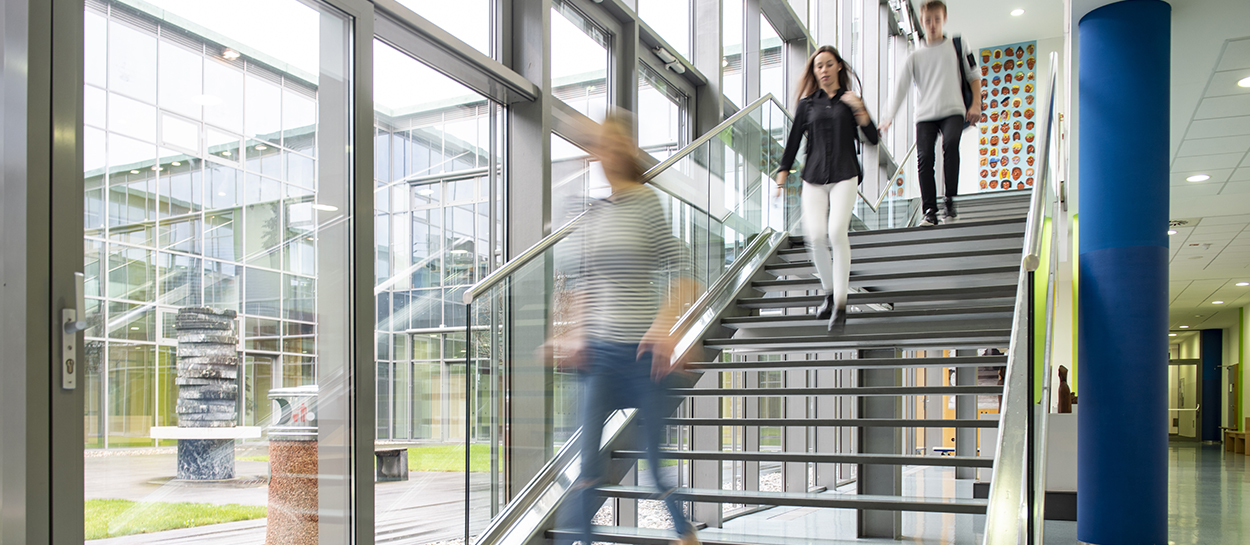
Save water
Smart, sustainable water habits are important to adopt now, and they’re only going to be more critical in the future.
- Check for leaky faucets or other water fixtures. Report leaks to Facilities or to your landlord.
- Do the Navy shower! This is what the military taught sailors to do: Turn on the water to get wet, turn off the water to lather up with soap and shampoo, and then turn on the water again to rinse off. You’ll reduce water use dramatically.
- Reduce the shower duration. A two-minute reduction in your daily shower time can save 10+ gallons of water.
- Turn off the faucet while brushing your teeth or shaving.
- Run full loads of laundry rather than multiple small loads.
- Use the dishwasher only when it is full.
- When handwashing dishes, fill a sink or basin with soapy water rather than keeping the water running.
- Rent green. When shopping for off-campus housing, give preference to units with water-saving features like low-flow showerheads and toilets.
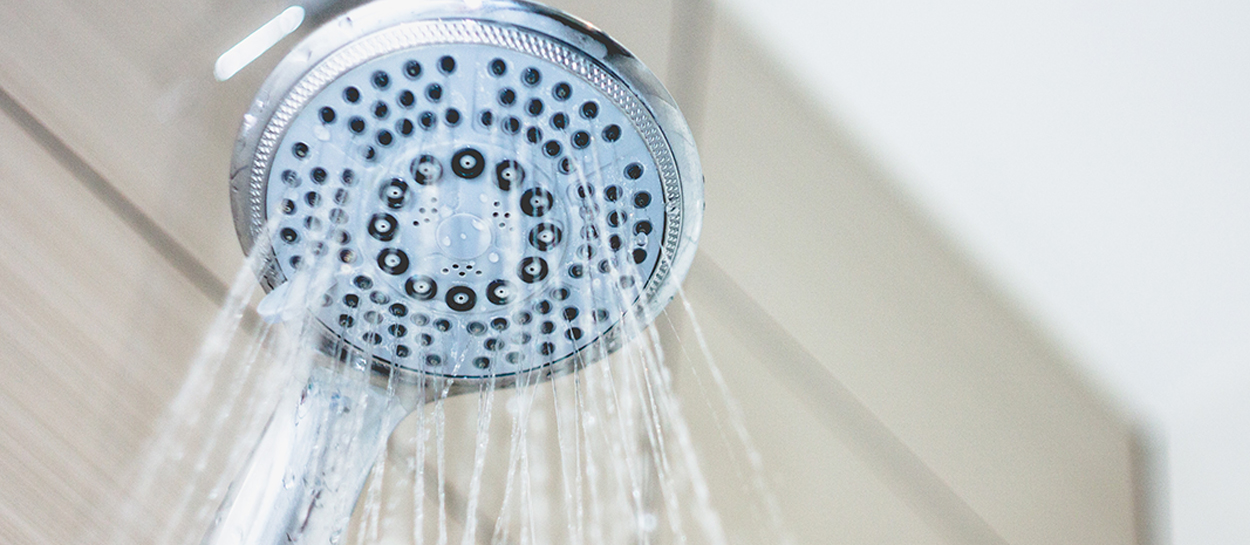
Get involved
Join forces with others to amplify your efforts to advance sustainability. In the process, you’ll meet new people and make new connections. There are more than 1,000 student groups and organizations on campus that meet regularly, host programs and events, and provide service to the Twin Cities area.
- Join a student group. Among the sustainability-focused options for University of Minnesota students are Voices for Environmental Justice, UMN Energy Club, and the Sustainable Systems Management Club. Organizations like these provide an opportunity to meet peers and discuss the intersection of environmental issues, equity and social justice.
- Be a voice for sustainability. If you’re a University of Minnesota student, Apply to be a Sustainability Advocate and become a zero-waste expert for your residence hall. Gain hands-on sustainability leadership experience educating peers on sustainable practices, plan zero waste community events, and more in partnership with the Recycling Program, Office of Sustainability, and Housing & Residential Life.
- If you’re an Augsburg University student, be a part of the Environmental Stewardship Committee. It’s part of the University Council.
- Join a Living Learning Community to connect and build relationships with students who share the same passion for the health and wellbeing of our natural world.
…One more reason to embrace sustainable living
The habits and skills you learn could lead you to a fantastic career. In fact, gaining sustainability knowledge is one of the best investments you can make as a future professional. In 2020, the GreenBiz Group polled business leaders about the areas where they were increasing funding. Their State of the Profession 2020 report showed strong sustainability-related spending across the board in areas ranging from Sustainability Communication to Reporting, Product Marketing and Social Responsibility Programs.
Hennepin County is here to help
Take a moment to learn more about sustainable living through our environmental programs and initiatives. You can also sign up for Hennepin County Green Notes, our monthly e-newsletter highlighting environmental programs, news and events from Hennepin County.
We welcome you to join us on the journey to sustainability. By adding your passion to ours, we can make a real difference for our community, and our planet.
